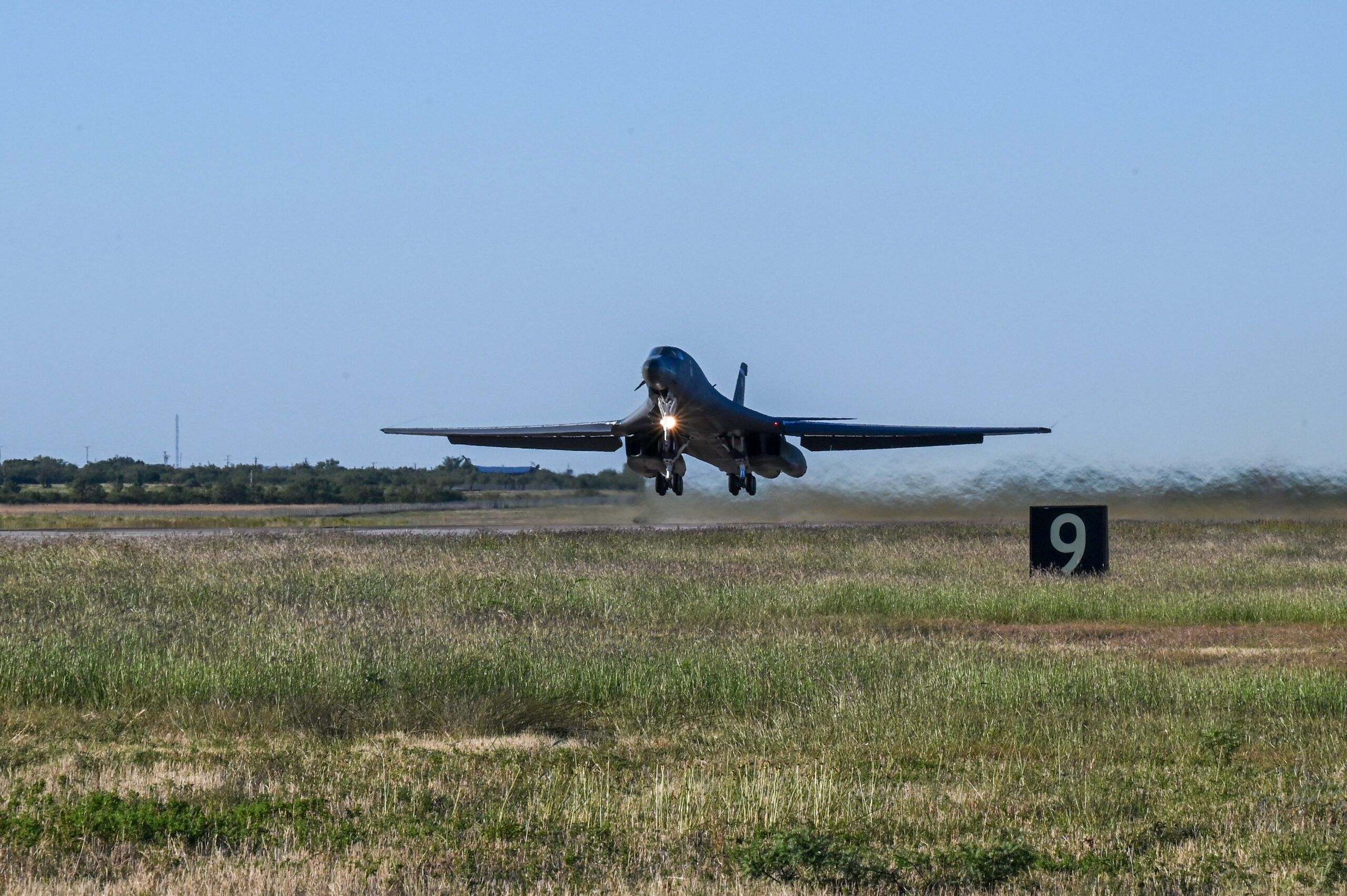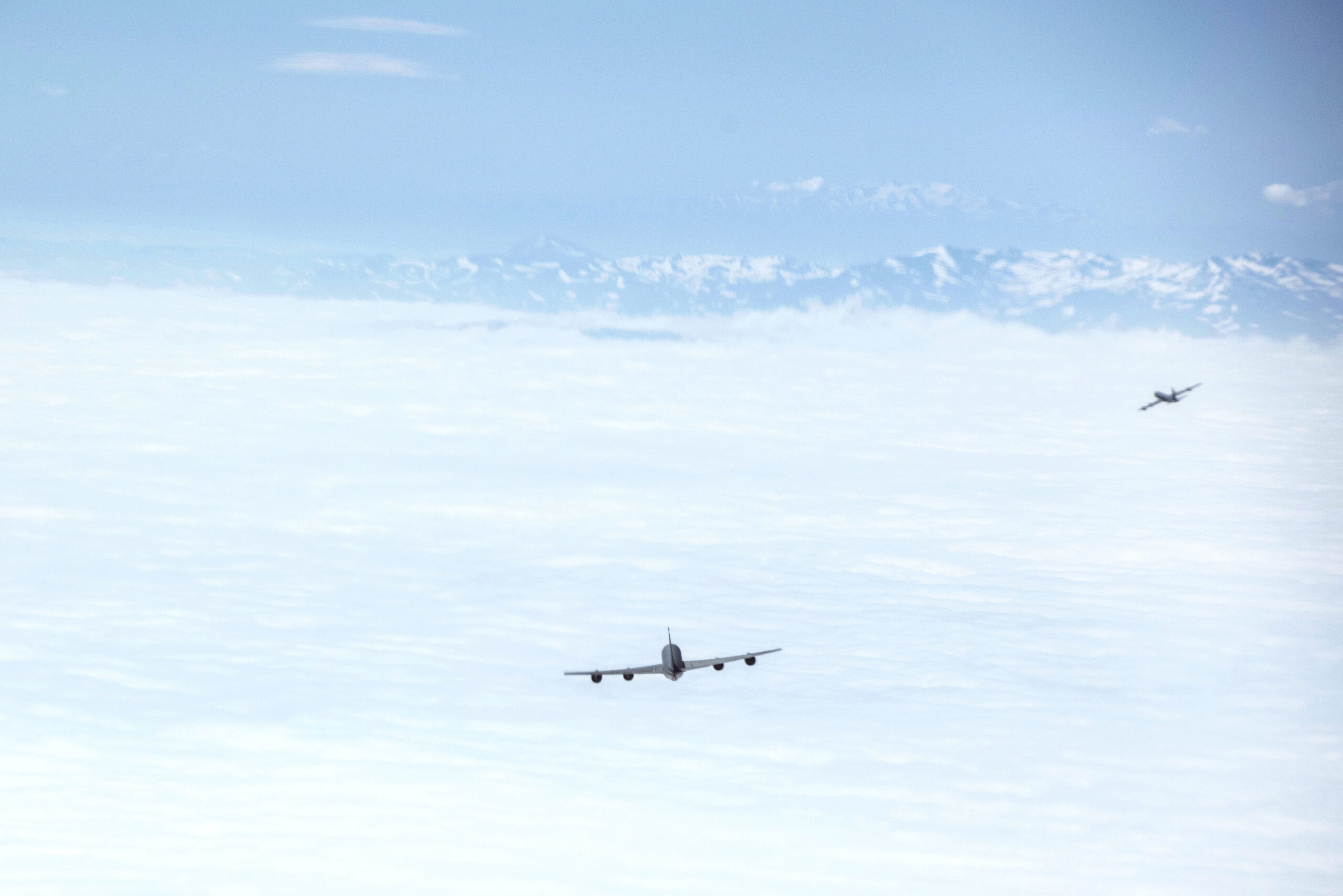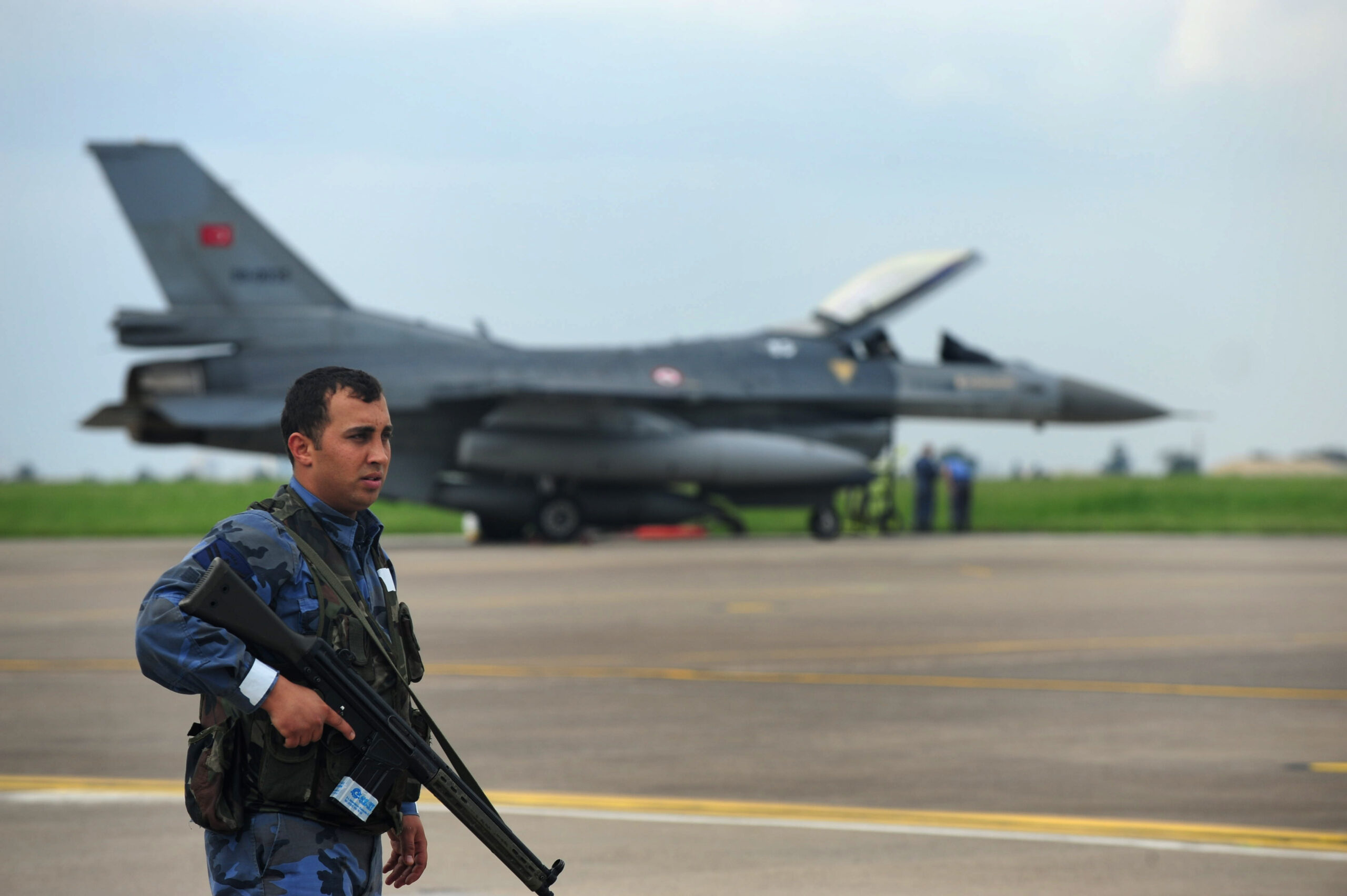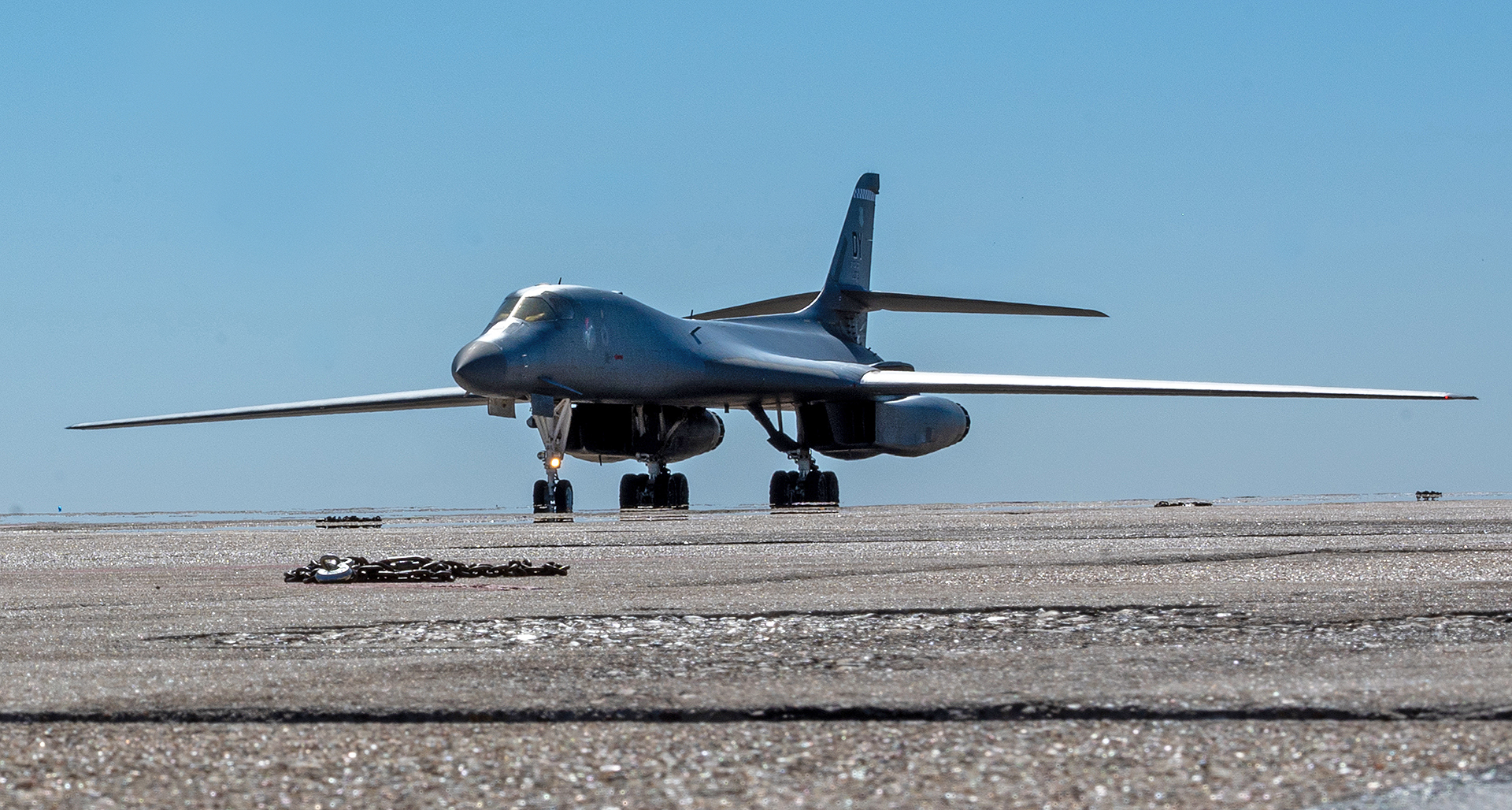A pair of U.S. Air Force B-1B Lancer bombers touched down in Turkey today for what may well have been the first-ever visit by the type to Incirlik Air Base. The visit comes at a time of significant tensions between Turkey and Israel, with Turkish President Recep Erdogan ramping up his rhetoric directed against the Israeli government, while at the same time claiming that its adversary, Hamas, is not a terrorist organization.
In a media release, the Pentagon’s Defense Visual Information Distribution Service (DVIDS) emphasized that the visit to Incirlik included the first ‘hot-pit’ refuel to have been conducted by the B-1 at the base. No photos have been provided, so far, to accompany that release, although local photographers did manage to capture the arrival of the B-1s in Turkey.
The B-1s are assigned to the 9th Expeditionary Bomb Squadron, nicknamed the “Bats,” from Dyess Air Force Base, Texas, which is currently deployed to RAF Fairford, in the United Kingdom, for Bomber Task Force-Europe 24-1. The aircraft arrived at the English base on October 12, 2023.

According to the DVIDS media release, the sojourn in Turkey was “part of a long-planned Bomber Task Force training mission.”
Hot-pit refueling is far from a new development for the B-1 fleet — as well as for other Air Force bombers, and other types.
As The War Zone explained in the past, a hot-pit refueling consists of the following:
“Hot pitting means keeping the engines running while the aircraft is refueled by ground crews. The tactic is used for everything from increasing training sortie rates to rapidly refueling and rearming combat aircraft at forward operating locations near enemy lines during a time of war to get them back in the fight faster.“
Just shutting a complex warplane like the B-1 down can drastically increase the chance that a component will break and it will not be to complete another sortie with repair, or even takeoff at all. Executing hot pitting and even crew-swaps while the engines are running helps alleviate the chances of this happening.
The B-1s were at Incirlik — an important U.S. military installation in its own right — for under two hours before they took off again and flew a training mission with the Turkish Air Force.
The training missions saw the B-1s integrate with Turkish Air Force KC-135R tankers — known locally as Asena — as well as F-16 Vipers. The scenarios practiced included Joint Terminal Attack Controller (JTAC) integration as well as close air support.

“The teamwork with our Turkish Air Force partners showcased the interoperability and professionalism of NATO aviators,” said the 9th EBS commander, Lt. Col. Ryan Stillwell. “Thank you to the 10th Tanker Base and the 39th Air Base Wing Team Titan for their expert support and hospitality.”
Lt. Col. Stillwell was specifically referring to Incirlik Air Base, which is known locally as the 10th Tanker Base, as well as the U.S. Air Force contingent at the same base, organized under the 39th Air Base Wing. According to the Air Force itself, this wing “helps protect U.S. and NATO interests in the Southern Region by providing a responsive staging and operational air base ready to project integrated, forward-based air power.”
Incirlik Air Base houses B61 nuclear bombs, although no aircraft are forward based there that can employ them. The fact that these weapons are still located in Turkey has become increasingly controversial, especially after a failed coup attempt against Erdogan and its turbulent aftermath. It’s critical to stress that the B-1s are not capable of employing these or any other nuclear weapons.
“We are excited to support and commemorate this historic hot-pit refueling operation out of Incirlik,” said Col. Robert Schoeneberg, 39th Air Base Wing deputy commander. “It demonstrates the unique capabilities and strategic positioning of this base. Moreover, it highlights to everyone that Türkiye is an essential partner and Team Titan is open for business.”

Far more significant than the hot-pit milestone presented by the Department of Defense is the very visible demonstration of the Air Force’s ability to deploy its B-1s — among its most visible and potent long-range strike assets — to different locations around the globe, including those close to trouble spots, in this case, the ongoing conflict in Israel.
Beyond that, it’s also significant that the U.S. Air Force integrating so closely with its Turkish counterpart at this point. Not only are relations between Turkey and Israel especially sour at present, but Ankara has also been a thorn in the side of Sweden’s ambitions to join the NATO alliance.
Just last weekend, President Erdogan told a huge pro-Palestinian rally in Istanbul he considered Israel an occupier and once again claimed that Hamas is not a terrorist organization.
“The main culprit behind the massacre unfolding in Gaza is the West,” Erdogan told the crowd. “If we leave aside some conscientious voices… the massacre in Gaza is entirely the work of the West.”
Erdogan also said that Israel was behaving like a “war criminal.”
Meanwhile, when it comes to Swedish NATO membership, Ankara has been unhappy with what it alleges is Sweden’s sympathetic stance on Kurdish militants, including members of the Kurdistan Workers Party (PKK), considered a terrorist organization by Turkey, the European Union (EU), and the United States.
With this in mind, the visit of the B-1s to Incirlik Air Base takes on a different resonance. While it will have been planned well in advance — as DVIDS has stated — the symbolism of the event, and what it says about U.S.-Turkish relations, cannot pass without notice.
Contact the author: thomas@thedrive.com
